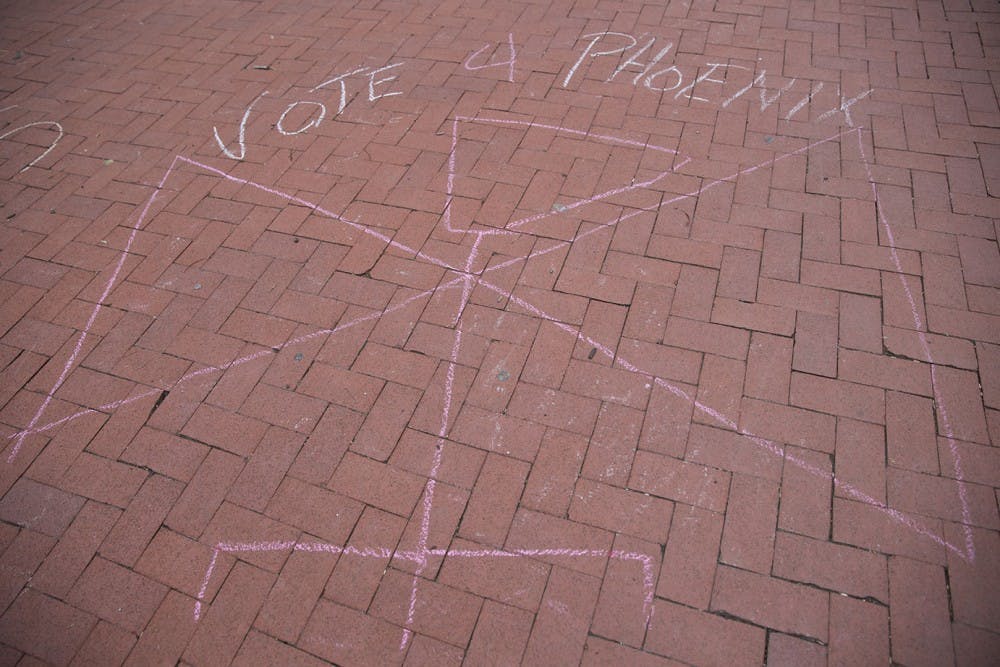A resolution that caps campaign funding for Student Senate elections forces candidates to get creative with their restricted budgets.
Tickets campaigning for Student Senate seats are coping with restrictions on their budgets this year after senate capped funding at its October 29 meeting.
Independent executive candidates are allowed $20. Independent candidates not running for executive positions are allowed $10. Tickets are allowed $20 for each executive candidate and $10 for each non-executive candidate, providing a financial advantage for large tickets.
“Being that we are a smaller ticket, we have had to spend our money wisely,” said Charlotte Klimovich, Student Nation candidate for treasurer and current vice commissioner for the Senate Appropriations Commission. “Thus far, we've only spent money buying a Facebook ad and chalk for advertising.”
Candidates will also be allowed to accept "in-kind" donations, which are capped at $50 for independent candidates, and $100 for tickets.
Previously, a ticket could raise up to $1,950 plus $200 per non-executive candidate member, and receive up to $200 in in-kind donations. Independent candidates for executive positions could raise up to $1,000 and a non-executive, independent candidate could raise up to $650.
Senate passed the funding caps to reduce the gap between wealthy and non-wealthy candidates, Student Senate Vice President Caitlyn McDaniel said in a previous Post report. At the October meeting where senate passed the funding caps, it also shortened campaigning season from 24 days to 14 days.
The four tickets competing for 2015-16 senate seats have had to adjust to these substantial budget reductions by spending wisely.
“It’s been a change to work with $470 instead of an almost unlimited budget, but I think SOS has been able to handle it well and decide what was important and what was not,” said Hannah Clouser, SOS candidate for treasurer and current SAC senator. “Overall, I would say that it hasn't been too hard to deal with the limited budget; it just required more creative thought.”
In an effort to stay under budget, Clouser said that the SOS ticket made use of resources they already had by making their own T-shirts rather than printing them. The ticket also saved money by printing half-sheet flyers and buying small items, like chalk, in bulk.
{{tncms-asset app="editorial" id="b2b2edea-d8c6-11e4-92b5-ef5532e99a8a"}}
The Phoenix ticket devoted a portion of its budget to T-shirts, signage, candy and mac and cheese, said Tony Piccioni, the ticket’s presidential candidate.
Phoenix used the macaroni to host an event last Thursday that they hoped would be a fun way to raise awareness of their platform.
“My other ticket members came up with “Macaroni with Piccioni” as a fun and catchy title and because who doesn’t like mac and cheese?” Piccioni said.
Creativity has been an important factor in overcoming tight budgets.
“There have been fewer big flashy banners and a lot more homemade stuff, which I think is cool; it encourages people’s creativity,” McDaniel said. “When you have to choose between spending money or just going a little bit out of your comfort zone to reach out to students, I tend to prefer the second. How willing are you to engage students when you don’t have your checkbook talking for you?”
Final numbers for how much each ticket raised will not be available until after the election.
mb076912@ohio.edu
@mayganbeeler






